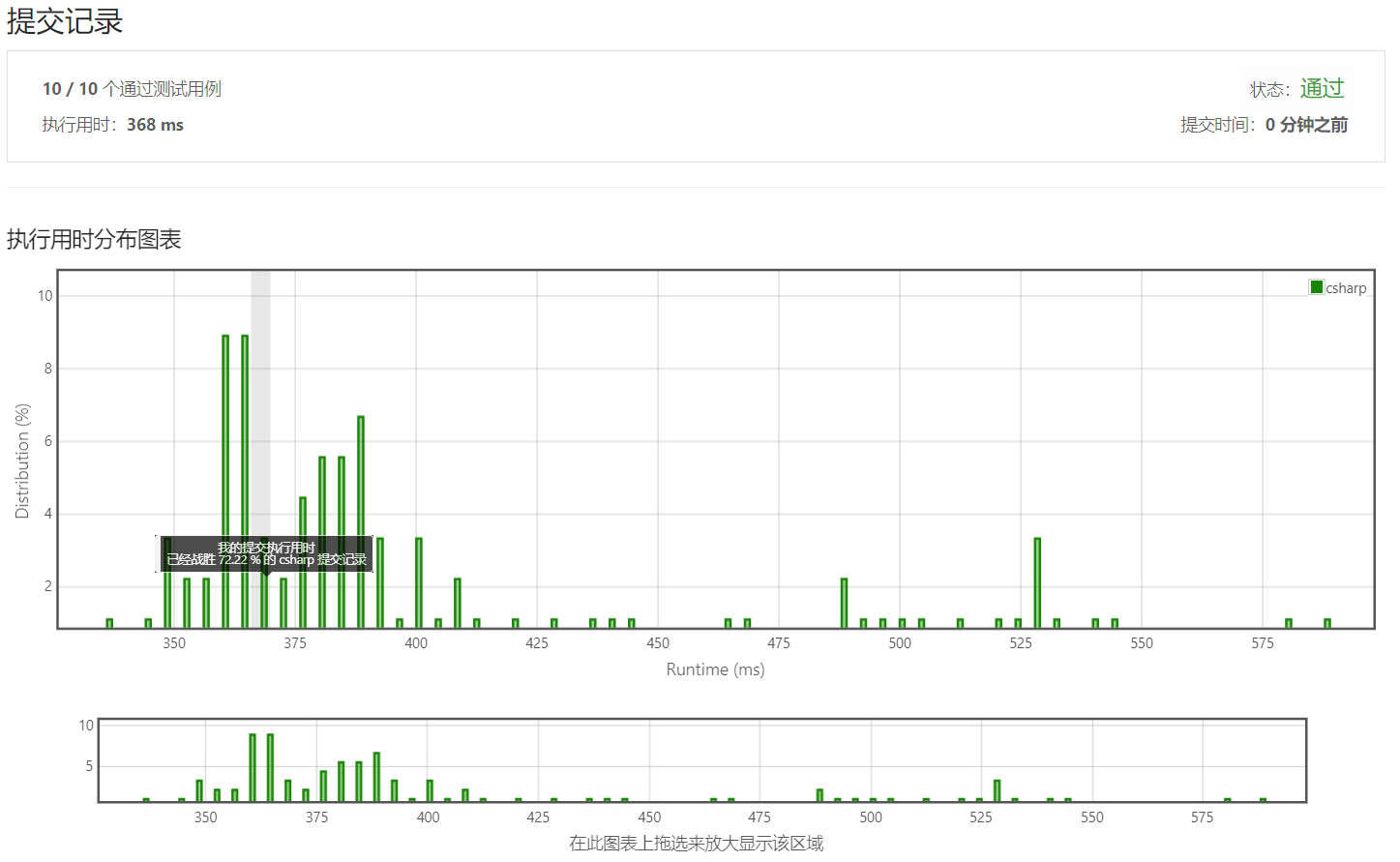subject
Given a set of integer arrays nums without repeating elements, all possible subsets (power sets) of the array are returned.
Description: Unset cannot contain duplicate subsets.
Example:
Input: nums = [1,2,3] Output: [ [3], [1], [2], [1,2,3], [1,3], [2,3], [1,2], [] ]
Algorithm implementation
public IList<IList<int>> Subsets(int[] nums) { IList<IList<int>> list = new List<IList<int>>(); list.Add(new List<int>()); int len; for (int i = 0; i < nums.Length; i++) { len = list.Count;//Record the number of elements to copy for (int j = 0; j < len; j++)//Replicated subset { list.Add(new List<int>(list[j])); } for (int k = len; k < list.Count; k++)//Add the current element to the subset replicated later { list[k].Add(nums[i]); } } return list; }
results of enforcement
Implementation results: through
Execution time: 368 ms, beating 72.22% of all C# submissions
Memory consumption: 29.6 MB, beating 6.67% of users in all C submissions
Small summary
This problem is a little difficult for me. I intend to find the law first, but failed. Later, when I read the problem, I learned a recursive method. I can understand it and compile my own program. The latter backtracking method has been successfully transplanted to c #, but it is a little unknown.
Backtracking method
//Backtracking method private IList<IList<int>> res; private void find(int[] nums, int begin, IList<int> pre) { // No explicit recursive termination res.Add(new List<int>(pre));// Note: Here's a new one. for (int i = begin; i < nums.Length; i++) { pre.Add(nums[i]); find(nums, i + 1, pre); pre.RemoveAt(pre.Count - 1);// Combination problem, state reset after recursion } } public IList<IList<int>> Subsets(int[] nums) { int len = nums.Length; res = new List<IList<int>>(); if (len == 0) { return res; } IList<int> pre = new List<int>(); find(nums, 0, pre); return res; }
